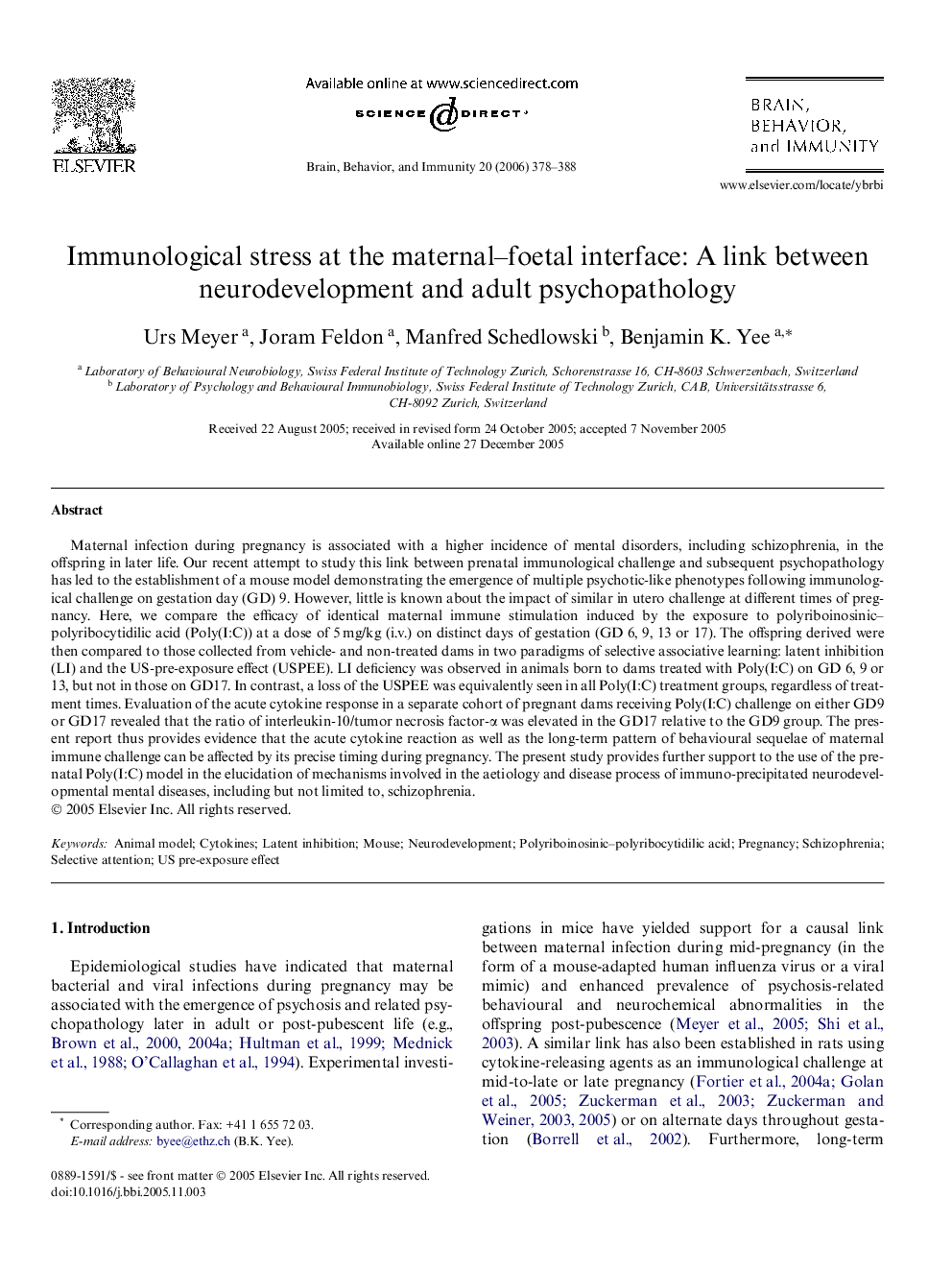| Article ID | Journal | Published Year | Pages | File Type |
|---|---|---|---|---|
| 923789 | Brain, Behavior, and Immunity | 2006 | 11 Pages |
Maternal infection during pregnancy is associated with a higher incidence of mental disorders, including schizophrenia, in the offspring in later life. Our recent attempt to study this link between prenatal immunological challenge and subsequent psychopathology has led to the establishment of a mouse model demonstrating the emergence of multiple psychotic-like phenotypes following immunological challenge on gestation day (GD) 9. However, little is known about the impact of similar in utero challenge at different times of pregnancy. Here, we compare the efficacy of identical maternal immune stimulation induced by the exposure to polyriboinosinic–polyribocytidilic acid (Poly(I:C)) at a dose of 5 mg/kg (i.v.) on distinct days of gestation (GD 6, 9, 13 or 17). The offspring derived were then compared to those collected from vehicle- and non-treated dams in two paradigms of selective associative learning: latent inhibition (LI) and the US-pre-exposure effect (USPEE). LI deficiency was observed in animals born to dams treated with Poly(I:C) on GD 6, 9 or 13, but not in those on GD17. In contrast, a loss of the USPEE was equivalently seen in all Poly(I:C) treatment groups, regardless of treatment times. Evaluation of the acute cytokine response in a separate cohort of pregnant dams receiving Poly(I:C) challenge on either GD9 or GD17 revealed that the ratio of interleukin-10/tumor necrosis factor-α was elevated in the GD17 relative to the GD9 group. The present report thus provides evidence that the acute cytokine reaction as well as the long-term pattern of behavioural sequelae of maternal immune challenge can be affected by its precise timing during pregnancy. The present study provides further support to the use of the prenatal Poly(I:C) model in the elucidation of mechanisms involved in the aetiology and disease process of immuno-precipitated neurodevelopmental mental diseases, including but not limited to, schizophrenia.
